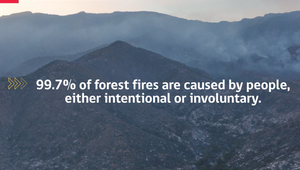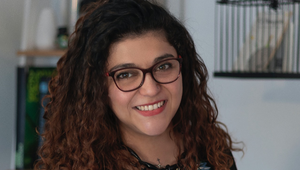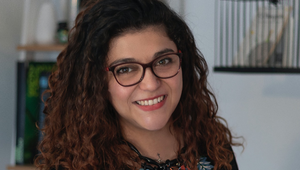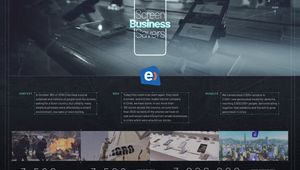
5 Minutes with… Maribel Vidal

Maribel Vidal is a stalwart of the Chilean advertising industry. These days she is the VP and director of strategic planning at McCann Chile but has been working in agencies for the past 30 years, overseeing numerous studies on the Chilean consumer, sitting as the president of the women's leader council for McCann Latin America and the Caribbean and teaching as a professor in advertising, creativity and strategic planning in pre and post degree courses both nationally and internationally. If that wasn't quite enough, in her free time she sits as a director of La Comunidad Organizaciones Solidarias, a network of around 250 NGOs working against poverty and exclusion. She has been doing that for more than 10 years.
LBB's Addison Capper chatted with Maribel about the state of Chilean advertising during a time of rapid change in Latin America, why Chile is such a hub for startups and an obsession with human behaviour.
LBB> Historically I think Argentina and Brazil have long been seen as the creative powerhouses of LATAM but markets like Chile are producing great work now. How do you see the advertising industry in Chile right now?
Maribel> I agree with you that historically Brazil and Argentina have historically been recognised as the most creative markets in the region but this perception is getting a little bit wider. Now we have Peru, which has a very good creative product, the same with Colombia. I think Chile is definitely among this new landscape of creative markets. There was proof recently if you look at the LATAM Effie Awards that happened in Cartagena, Colombia. The Effies don’t just judge effectiveness - it’s a good combination of creativity and effectiveness. The level was very good. For the second year in a row McCann Latin America was recognised as the network with the most Effies but these awards came from 12 different markets - they weren’t just concentrated to Brazil and Argentina.
Talking about Chile specifically, I think one thing helping to accelerate the transformation is our industry of startups and technology - it is quite developed here. We are a country within the region that has more of an emphasis on startups, technology and development, and that definitely helps.
LBB> What has led to Chile being a hub for technology and startups?
Maribel> Chile is a country of 18 million people, which is much less than Brazil, Colombia, Peru, etc., but there are certain characteristics of the country - such as the stability of our government - that makes it a good place for a test market. International companies come here to make the first start in the region and that helps. Another thing is that there are Chilean brands that we call ‘multi Latinas’ - Chilean brands that operate in more than one country in the region. As the market here is small, the need to go to other markets in the region.
These two things have accelerated the level of communications, innovation and transformation, and at the same time have made Chile a country that is more open to receive talent from other markets. Due to the geographic position of Chile, the country mainly looked to the sea - it was a little bit like an island. But over the past 15-20 years everything has been much more accelerated. We are receiving people from other countries and the migrant population in Chile is 6.6% of the nation. That’s a lot for a country of our size. That has opened us up to people from Venezuela, Colombia, Peru, Argentina, and other countries in the region that are economically quite unstable. So, good professionals come to Chile - in McCann Chile at least 13% of our staff are not Chilean. This new talent and cultural diversity make the conversation totally different and, to me, explain why Chile is a good place to innovate.
Chile also has a high amount of B certified corporations - one third of all LATAM B corporations are in Chile. All of these companies need technology and innovation.
LBB> From an advertising to consumer perspective, is technology an important medium for brands in Chile?
Maribel> The penetration of the internet in Chile is 87% and from this base 93% are smartphones mobiles - that forces you to have conversations with the consumer totally differently. The amount of time the average Chilean spends with social media and second screening forces us to think about the terms of how we get advertising content to them. An example is a campaign that we did for Ripley, a department store here - we won an Effie for it in Cartagena. The campaign was a short film for the Christmas period but the entire media strategy was different because we only broadcast it on one TV channel once, at prime time. The rest was social media. In terms of building brands and helping brands to be meaningful, to really bring a purpose to people’s lives, we need to be cleverer.
LBB> Gender bias is still a huge topic in advertising but I wondered what the situation was like in Chile - how much of an issue is diversity in the industry?
Maribel> It’s a really important topic. Last December CONAR, which is the Chilean ethics and self-regulation council (integrated by advisers, advertising agencies, and all media), launched the sixth version of its. In 30 years of CONAR history, they actualised the ethics code every five years on average. This is unusually often for a code of this kind. It means that the industry is very aware of the changes in society, and committed to move fast to put the code into practice. One was around being careful about gender bias and bias in general. This was very bold. It was making a statement about how advertising cannot fuel negative stereotypes and bias - advertising has to be careful about how it is representing society. The second thing regulated how advertisers work with influencers.
A couple of weeks ago ANDA made the Chilean version of the Unstereotype Guide - this was made in collaboration with the gender equality ministry. We also have a very strong law against discrimination. There’s a law about the percentage of people in an office with a disability. If you have a certain amount of people in your office, by law you are forced to have a certain percentage of people with certain disabilities. The office has to be prepared for it. This law makes us think not only about diversity but also inclusion. Diversity is something we like to do but it is not enough if you don’t have inclusion - the practice and policies to make something happen.
LBB> How did you first get involved with advertising? Was it an industry you sought out or was it a bit more accidental?
Maribel> I knew that I wanted to do something to do with communication. My first choice was to be a journalist, which seemed like a more obvious choice, but I wanted to be something like a Watergate journalist. There wasn’t a place for that in Chile. My second choice was to be an anthropologist because I like human behaviour but when I was 16 I had the opportunity to go to Paris. At the time the Georges Pompidou Centre had an exhibition on advertising and I didn’t know that such a thing existed as a job discipline. This opened a window in my brain because I realised it was a mix of anthropology, communications and creativity. I came back from that trip knowing it was what I wanted to do and I’ve been doing it now for the past 30 years.
LBB> You’ve mentioned that you were interested in human behaviour and such, but how did you end up working in strategy?
Maribel> You could call it a coincidence but I don’t believe in coincidences. When I studied advertising I was very good at research - I was pretty good at qualitative and quantitative. My job was in a research company - in my mind that’s where I would end up working. I worked for a philosopher and studied in Europe and had a much wider view of advertising there and how it works. He said to me that I was very good at research but that it wasn’t the end of the road for me. He showed me what it meant to be a planner. That opened my mind.
LBB> You mentioned quantitative and qualitative just then - but in the age of big data, how important is qualitative data?
Maribel> I think when we talk about ‘big data’ and using it to drive strategy and creative, this refers to quantitative and qualitative data. But the capability to be able to see qualitative data is key because this is the only way of really anticipating trends. You remember in The Matrix with the cat? You need to be aware of the movement of The Matrix to see that cat. I think this is the anthropologist inside of me but this is the way I approach a problem - I’m sure people who have a more engineering background approach things in a different way. Experience has taught me that intuition is a good gauge - intuition isn’t something just comes out of the sky, it’s an expression of observation and information that you have in your brain, your heart, your spirit.
LBB> As a strategist it's important to be on top of cultural trends and happenings - how do you ensure you keep up to date with what's relevant to you?
Maribel> I’m a very good listener. I like people, I like to talk and I like to listen. I’m always looking to review other clients that I admire in other markets. I’m constantly studying and learning. I like a wide range of cinema and TV, and read different books. Everything is interesting. But the main thing is that I try to be as close to my clients’ businesses as possible. I like to understand how certain pieces of technology work, how telecommunications work. If you aren’t connected to the business problem then you can easily lose the way.
LBB> And when you’re not doing that, what are your passions?
Maribel> I am very committed to NGOs, in particular an organisation called La Comunidad Organizaciones Solidarias - the community of solidarity organisations - which is made up of around 250 NGOs. It’s like a network where all of the NGOs work against poverty and exclusion. Establishing this network was important because it means we can have a much stronger point of view. We have accomplished a lot in 15 years and we are now invited to sit at the table with private companies and governors.
I help them in the use of communication to accomplish their cause and I also bring a network to the private sector, which is not naturally close to these organisations. That doesn’t sound like too much of a hobby - I like to cook! - but when I’m not working in advertising I spend a lot of time working here.













